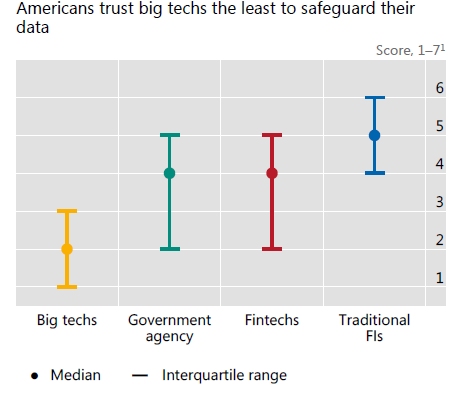Central banks are accelerating their planned introduction of new forms of digital money to head off the ambitions of large technology firms in this area.
“There is a sense of urgency [at central banks] when it comes to central bank digital currency (CBDC),” said Benoît Cœuré, head of the innovation hub at the Bank for International Settlements (BIS).
The Basel-based BIS is the main policymaking body for the world’s central banks.
“That sense of urgency comes the emergence of global stablecoins as a possible payment option and the entry of the bigtech firms into the payment market,” said Cœuré.
“There is a sense of urgency when it comes to CBDC”
Stablecoins are digital versions of existing fiat money, like the pound, dollar, euro or yen, but issued by private sector entities and backed by reserves.
In 2019, tech giant Facebook announced a project for a new global stablecoin. The firm has since dialled down its ambitions and is now focused on introducing a digital version of the US dollar.
Cœuré’s comments came ahead of the release of the BIS’s 2021 economic report, in which it devotes a special chapter to the topic of CBDCs.
In the report, the BIS makes a spirited defence of central banks’ role at the centre of the monetary system.
“The exploration of CBDCs provides an opportunity to review and reaffirm the public interest case for digital money,” the BIS said.
“The monetary system is a public good that permeates people’s everyday lives and underpins the economy.”
Specifically, the BIS said, central banks have a role in keeping payment systems open-access and low-cost.
If large tech firms were to take over money via new digital payments technology, the BIS went on, the outcome for consumers might be worse than it is today.
“The monetary system is a public good”
“Digital money should be designed with the public interest in mind,” the BIS said.
“The same technology that can encourage a virtuous circle of greater access, lower costs and better services might equally induce a vicious circle of data silos, market power and anti-competitive practices,” it said.
In the report, the BIS said that high costs are still one of the most stubborn shortcomings of the existing payment system.
It cited the high merchant fees associated with credit and debit card payments as an example, pointing out that in some regions revenues deriving from credit card fees add up to more than 1 percent of GDP.
The public sector also has role in ensuring competition in the payment system and in preventing individuals’ data from being used to their disadvantage, the BIS said.
“Access to data confers competitive advantages that may entrench market power,” it warned.
“Ensuring privacy against unjustified intrusion by both commercial and government actors has the attributes of a basic right. For these reasons, the issue of data governance has emerged as a key public policy concern.”
Backing up its warning, the BIS cited survey data showing that US consumers trust such bigtech firms the least to manage their data, with traditional financial institutions receiving higher confidence ratings.

According to the BIS’s innovation chief, private stablecoins, such as that proposed by Facebook, will only ever be an appendage to the existing monetary system, run by central banks.
“CBDCs will be at the centre and you will have all kinds of private means of payment around them, including stablecoins, new interfaces, mobile payments and so on,” Cœuré said.
Two weeks ago the Basel Committee for Banking Supervision, which is hosted by the BIS, proposed new guidelines for cryptoassets held by traditional financial institutions.
The committee said that if banks held stablecoins without a robust stabilisation mechanism they would face punitive capital charges for doing so.
Sign up here for the New Money Review newsletter
Click here for a full list of episodes of the New Money Review podcast: the future of money in 30 minutes
Related content from New Money Review
BIS boosts digital currency response









